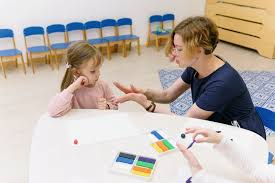In the realm of early childhood education, the role of worksheets often sparks debates among educators and parents. Some argue that worksheets limit creativity and play, while others assert that they play a vital role in laying the foundation for a child’s academic journey. In reality, when used judiciously, worksheets can be powerful tools for fostering essential skills and facilitating holistic development.
Worksheets provide a structured and systematic way to introduce young learners to fundamental concepts. They offer a hands-on approach to learning letters, numbers, shapes, and colors. These activities not only enhance cognitive skills but also contribute to the development of fine motor skills. As children trace lines, connect dots, and color within designated spaces, they are refining their hand-eye coordination and gaining control over their fine motor movements.
Furthermore, worksheets serve as effective tools for reinforcing and practicing what children have learned through other methods. Repetition is key to solidifying new information, and worksheets provide a controlled environment for this repetition. Whether it’s practicing the alphabet, solving simple math problems, or identifying objects, worksheets offer a structured way to reinforce concepts and build a strong foundation for future learning.
In addition to cognitive and motor skill development, worksheets contribute to a child’s social and emotional growth. Working on worksheets often involves following instructions, completing tasks independently, and understanding the concept of finishing an assignment. These activities foster a sense of accomplishment and build self-esteem in young learners. Moreover, worksheets can be used as tools for collaborative learning, encouraging children to work together, share ideas, and learn from one another.
Critics argue that excessive reliance on worksheets may stifle creativity and play, which are crucial aspects of early childhood development. While this concern is valid, it’s important to emphasize that worksheets should complement, not replace, other forms of learning. Integrating a variety of teaching methods, including play-based activities and hands-on experiences, ensures a balanced and comprehensive approach to early learning.
In conclusion, worksheets play a crucial role in early learning development when used thoughtfully and in conjunction with other educational methods. They provide a structured platform for acquiring fundamental skills, fostering cognitive development, and promoting social and emotional growth. The key lies in finding the right balance, allowing children to explore and learn through a combination of worksheets, play, and interactive experiences. Ultimately, a holistic approach that considers the individual needs and learning styles of each child will pave the way for a successful and enriching early education journey.




